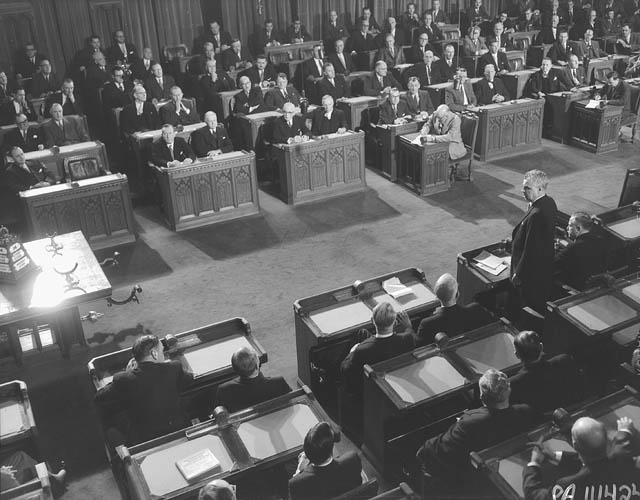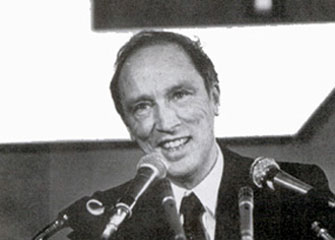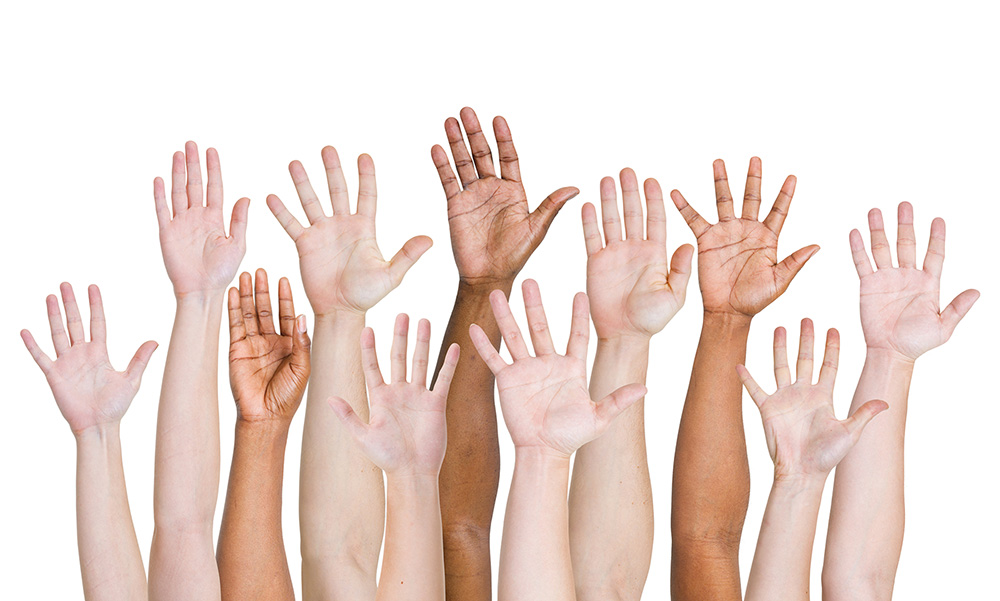Browse "Things"
-
Collection
Elections
Elections are a process in which Canadian citizens express their preferences about who will represent and govern them. Those preferences are combined to decide which candidates will become Members of Parliament. Elections are fundamental to the operation of democracy in Canada as they are the central means by which citizens grant authority to those who govern them.
"https://d2ttikhf7xbzbs.cloudfront.net/media/media/11551bec-a5f6-4e78-b101-265ddf7610cb.jpg" // resources/views/front/categories/view.blade.php
https://d2ttikhf7xbzbs.cloudfront.net/media/media/11551bec-a5f6-4e78-b101-265ddf7610cb.jpg
-
Macleans
Elections '97: The Platforms
Among political strategists, it is sometimes known as "the barbecue factor": the manner in which a once-hot candidate ends up cooked on election day. The principal example, one that many of Prime Minister Jean Chrétien's strategists recall with a shudder, is former Ontario Liberal leader Lyn McLeod.This article was originally published in Maclean's Magazine on May 26, 1997
"https://development.thecanadianencyclopedia.ca/images/tce_placeholder.jpg?v=e9dca980c9bdb3aa11e832e7ea94f5d9" // resources/views/front/categories/view.blade.php
https://development.thecanadianencyclopedia.ca/images/tce_placeholder.jpg?v=e9dca980c9bdb3aa11e832e7ea94f5d9
-
Timelines
Elections and Prime Ministers
This timeline lists events related to elections and Prime Ministers in Canada.
"https://d2ttikhf7xbzbs.cloudfront.net/media/media/39b78f3a-b1bb-47ec-aa0b-d4f5de005157.jpg" // resources/views/front/categories/view.blade.php
https://d2ttikhf7xbzbs.cloudfront.net/media/media/39b78f3a-b1bb-47ec-aa0b-d4f5de005157.jpg
-
Macleans
Elections Leaves Country Fractured
On the last day of what may have been Jean Chrétien's final election campaign, the Prime Minister went back to the place where his life and his political career both began.This article was originally published in Maclean's Magazine on June 9, 1997
"https://development.thecanadianencyclopedia.ca/images/tce_placeholder.jpg?v=e9dca980c9bdb3aa11e832e7ea94f5d9" // resources/views/front/categories/view.blade.php
https://development.thecanadianencyclopedia.ca/images/tce_placeholder.jpg?v=e9dca980c9bdb3aa11e832e7ea94f5d9
-
Article
Elections of 1925 and 1926
The following article is an editorial written by The Canadian Encyclopedia staff. Editorials are not usually updated.
"https://d2ttikhf7xbzbs.cloudfront.net/media/media/b82af0bf-c28c-4f44-be97-09df6c7f769a.jpg" // resources/views/front/categories/view.blade.php
https://d2ttikhf7xbzbs.cloudfront.net/media/media/b82af0bf-c28c-4f44-be97-09df6c7f769a.jpg
-
Article
Elections of 1957 and 1958
The following article is an editorial written by The Canadian Encyclopedia staff. Editorials are not usually updated.
"https://d2ttikhf7xbzbs.cloudfront.net/media/media/d024c85f-684d-4895-bde2-37d4f64620e5.jpg" // resources/views/front/categories/view.blade.php
https://d2ttikhf7xbzbs.cloudfront.net/media/media/d024c85f-684d-4895-bde2-37d4f64620e5.jpg
-
Article
Elections of 1979 and 1980
The following article is an editorial written by The Canadian Encyclopedia staff. Editorials are not usually updated. Calling elections is like Goldilocks visiting the three bears — which political stew will turn out to be too soon, too late, or just right? The elections of 1979 and 1980 illustrate the perils of too late, followed by too soon.
"https://d2ttikhf7xbzbs.cloudfront.net/media/media/94d33b59-7a6c-4ea2-9fb1-b4b57e3be842.jpg" // resources/views/front/categories/view.blade.php
https://d2ttikhf7xbzbs.cloudfront.net/media/media/94d33b59-7a6c-4ea2-9fb1-b4b57e3be842.jpg
-
List
Elections to Remember
We love them and we hate them. They bring out the best in us, and the worst. They frequently divide us, and sometimes — as with John Diefenbaker's thunderous victory in 1958 — federal elections succeed in uniting the country behind a single impulse, or a single voice. One thing's for sure: amid all the change that has swept across Canada since Confederation, there has remained one steadfast certainty — that every few years, we ordinary citizens have the right to collectively choose who should govern us. Today, this privilege is not shared by billions of the world's people. How lucky that our democracy endures. When Canadians return to the polls, not only will we be carrying out the business of voting, we'll be writing a new chapter in Canada's rich electoral history. It's an intriguing story, filled with high stakes, hijinks and high passions, not to mention a colourful cast of political characters. Here are some famous elections from the past, and how they changed Canada . . .
"https://development.thecanadianencyclopedia.ca/images/tce_placeholder.jpg?v=e9dca980c9bdb3aa11e832e7ea94f5d9" // resources/views/front/categories/view.blade.php
https://development.thecanadianencyclopedia.ca/images/tce_placeholder.jpg?v=e9dca980c9bdb3aa11e832e7ea94f5d9
-
Article
Voting Behaviour in Canada
The decision to vote for a particular political party is affected by many factors. These include socio-demographic factors, such as gender, race, ethnicity, religion and region of residence. Such factors can influence voters’ values and political attitudes. Together, all of these elements combine to shape an individual’s choice of political party during an election. Electoral dynamics vary considerably between individuals and groups; there is no one rule fits all.
"https://d2ttikhf7xbzbs.cloudfront.net/media/media/48885018948_00316777f6_c.jpg" // resources/views/front/categories/view.blade.php
https://d2ttikhf7xbzbs.cloudfront.net/media/media/48885018948_00316777f6_c.jpg
-
Article
Electoral Reform in Canada
Electoral reform is the process of reviewing and reconfiguring the structure of electoral politics, i.e., the way in which voters elect their representatives. In Canada, electoral reform has historically occurred through reconfigurations of electoral ridings, or the extension of the right to vote to previously disenfranchised groups of people. Attempts have been made to change electoral systems on a number of occasions, at both the provincial and federal level. The matter was of specific interest throughout 2016 due to the Liberal Party’s pledge during the 2015 federal election campaign to enact reform by 2019. However, the Trudeau government abandoned this in February 2017, citing a lack of consensus on the issue.
"https://d2ttikhf7xbzbs.cloudfront.net/media/media/32642e72-c51c-4512-baa4-7f33f2446699.jpg" // resources/views/front/categories/view.blade.php
https://d2ttikhf7xbzbs.cloudfront.net/media/media/32642e72-c51c-4512-baa4-7f33f2446699.jpg
-
Article
Canadian Electoral System
Electoral systems are methods of choosing political representatives. (See also Political Campaigning in Canada.) Elections in Canada use a first-past-the-post system, whereby the candidate that wins the most votes in a constituency is selected to represent that riding. Elections are governed by an elaborate series of laws and a well-developed administrative apparatus. They occur at the federal, provincial, territorial and municipal levels. Canada’s federal election system is governed by the Canada Elections Act. It is administered by the Chief Electoral Officer. Provincial election systems, governed by provincial election acts, are similar to the federal system; they differ slightly from each other in important details. Federal and provincial campaigns — and that of Yukon — are party contests in which candidates represent political parties. Municipal campaigns — and those of Northwest Territories and Nunavut — are contested by individuals, not by parties.
"https://d2ttikhf7xbzbs.cloudfront.net/media/media/3fcad776-7e8d-47da-86aa-c77b5a9d2744.jpg" // resources/views/front/categories/view.blade.php
https://d2ttikhf7xbzbs.cloudfront.net/media/media/3fcad776-7e8d-47da-86aa-c77b5a9d2744.jpg
-
Macleans
Electric Cars to be Marketed
This article was originally published in Maclean’s magazine on July 29, 1996. Partner content is not updated. O'Callaghan was one of the first people in Canada to drive the Impact, a compact electric vehicle (known as an EV) that will soon be the subject of a joint research project by General Motors Corp., B.C. Hydro and the British Columbia government.
"https://d2ttikhf7xbzbs.cloudfront.net/media/media/7024f0cf-140f-4776-9c23-55385216584a.jpg" // resources/views/front/categories/view.blade.php
https://d2ttikhf7xbzbs.cloudfront.net/media/media/7024f0cf-140f-4776-9c23-55385216584a.jpg
-
Article
Electric Power
Electricity is a property of the atomic structure of matter, and is manifested as attraction between 2 oppositely charged bodies or repulsion between 2 similarly charged bodies.
"https://development.thecanadianencyclopedia.ca/images/tce_placeholder.jpg?v=e9dca980c9bdb3aa11e832e7ea94f5d9" // resources/views/front/categories/view.blade.php
https://development.thecanadianencyclopedia.ca/images/tce_placeholder.jpg?v=e9dca980c9bdb3aa11e832e7ea94f5d9
-
Article
Development of Electric Power in Canada
The development of electric power in 19th-century Canada went hand in hand with advances in lighting technology and industrialization.
"https://d2ttikhf7xbzbs.cloudfront.net/media/media/c4b720e6-aa16-41ea-89bf-d498acb719b2.jpg" // resources/views/front/categories/view.blade.php
https://d2ttikhf7xbzbs.cloudfront.net/media/media/c4b720e6-aa16-41ea-89bf-d498acb719b2.jpg
-
Article
Electric-Power Generation
In Canada the 2 basic methods of producing electric power are hydroelectric generation, based on the energy contained in flowing water, and thermal generation, based on the production of steam.
"https://d2ttikhf7xbzbs.cloudfront.net/media/media/97405108-6888-496b-ad3a-0fc0522a04e9.jpg" // resources/views/front/categories/view.blade.php
https://d2ttikhf7xbzbs.cloudfront.net/media/media/97405108-6888-496b-ad3a-0fc0522a04e9.jpg
